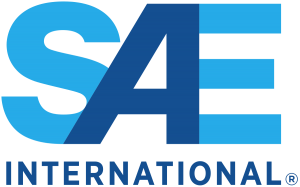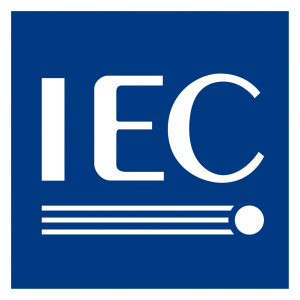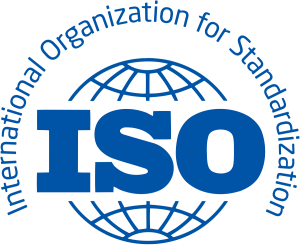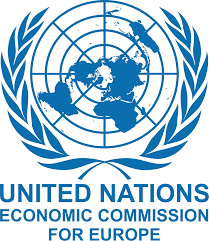Wireless charging standards and company certifications
As the pioneer of dynamic and static wireless charging for electric vehicles, Electreon is at the forefront of developing wireless charging standards. Below are the standards that Electreon is active in leading and complying with.

Electreon is part of several SAE related working committees to contribute to, develop and finalize the first set of international standards that will enable interoperability for static and dynamic wireless power transfer for charging EVs while in motion, including:
In November 2023, SAE established Electreon’s DIPS system as the global industry standard for wireless charging alignment methodology. By standardizing the DIPS technology for wireless power transfer, the new protocol enables seamless automated charging to be interoperable across public and private infrastructure. DIPS works by using a magnetic field between the ground assembly (in-road charging coil) and the vehicle assembly (vehicle receiver) to guide precise alignment for charging. The new updated SAE J2954 standard, scheduled to be published in 2024, will include specifications for fine alignment, pairing/authentication, and alignment checks between the in-road coil and receiver. Read more about the SAE’s announcement here.
SAE International is a global association of engineers, technical experts, and industry professionals dedicated to advancing mobility technology. SAE plays a crucial role in shaping the future of transportation by providing a platform for collaboration, standardization, and knowledge exchange within the automotive, aerospace, and commercial vehicle industries. The organization facilitates the development of technical standards, educational programs, and professional resources, fostering innovation and ensuring the safety, efficiency, and sustainability of mobility systems worldwide, as well as solutions for the evolving challenges in transportation.

Electreon adheres to IEC 61980-1 wireless power transfer standards, and is also part of several IEC related working committees to contribute to, develop and finalize the first set of international standards that will enable interoperability for static and dynamic wireless power transfer for charging EVs while in motion, including:
- IEC 61980-4 (high-power WPT)
- IEC 61980-5 (dynamic WPT; previously called IEC 63243)
- IEC 61980-6 (specific for MF dynamic WPT, previously called IEC 63381)
The International Electrotechnical Commission (IEC) is a global organization that develops and publishes international standards for electrical and electronic technologies. IEC plays a pivotal role in ensuring the safety, efficiency, and interoperability of electrical systems and devices across various industries. Its standards cover a wide range of areas, including power generation, transmission, communication, and electronic components, providing a framework for global consistency and compatibility in electrical and electronic technologies.

Currently, Electreon is compliant with the below ISO5474-4:2025 safety for MF-WPT (wireless power transfer) vehicle assembly, and is also a member of working committees that are contributing to establishing the first set of international standards that will enable interoperability for dynamic wireless power transfer for charging EVs while in motion, including for ISO 5474-4 (Light-Duty) and ISO 5474-6 (Heavy-Duty).
Electreon has also passed all required ISO audits for non-technical certifications. These certifications are for both the HQ in Israel & for Electreon AB in Sweden. Currently, Electreon is compliant with:
- ISO 9001 2015 – Quality Management System- URS
- ISO 14001 2015 – Environmental Management System – URS
- ISO 27001 2022 – Information Security Management System – SII
- ISO 45001 2018 – Health & Safety Management System – URS
- ISO 21434 2021 – Road vehicles — Cybersecurity engineering
Regarding ISO/SAE 21434 (related to ECE R-155), Electreon is the first wireless EV charging provider worldwide to achieve this standard, a key international standard for automotive cybersecurity. This certification ensures that Electreon’s wireless charging infrastructure meets the highest cybersecurity standards, protecting vehicle communications with roads, charging systems, and the power grid. As automakers increasingly require compliance with ISO/SAE 21434 for integrating new technologies, this milestone positions Electreon as a preferred partner for OEMs and strengthens its role in large-scale transportation projects. Achieving this standard reflects over a year of dedicated effort, during which Electreon worked closely with automakers and cybersecurity experts to embed rigorous security measures throughout its technology lifecycle.
The International Organization for Standardization (ISO) is a global body that develops and publishes international standards to ensure the quality, safety, and efficiency of products, services, and systems across diverse industries. ISO standards cover a broad spectrum, including quality management, technology development, environmental management, information security, and numerous other areas.

The primary vehicle operational standards Electreon has received certifications for include:
- ECE R-121 (for electric bus): Concerning the interior fittings of motor vehicles (identification of controls, tell tales and indicators).
- ECE R-100 (for electric bus): Concerning the approval of battery electric vehicles with regard to specific requirements for the construction, functional safety and hydrogen emission.
- ECE R-10: Concerning the requirements regarding emissions (EMC) and the immunity to radiated and conducted disturbances related to direct control of the vehicle, the driver, passenger and other road users’ protection. The regulation addresses disturbances which would cause confusion to the driver or other road users, related to vehicle data bus functionality.
ECE regulations, established under the United Nations Economic Commission for Europe (UNECE), are international standards governing the design, construction, and performance of vehicles and vehicle components. Specifically, these regulations focus on ensuring safety, environmental impact, and overall technical compatibility of automotive and related products. Adopted by many countries, especially in Europe and beyond, ECE regulations provide a harmonized framework that promotes the free movement of vehicles across borders while maintaining high standards for safety and environmental sustainability.
Protection against Electromagnetic Field (EMF) disturbances
Electreon’s technology is compliant with various standards regarding EMF and electrical disturbances to the human body and foreign objects from the road, underlining the operational safety of its system. Electreon’s latest EMF testing was performed in accordance with IEC PAS 63184 and IEC TR 62905 testing standards following ICNIRP-2010 EMF limits guidelines for Electreon’s system.
Electreon has also performed EMF testing as part of its projects in Sweden, Italy, Norway, and France. All of which have highlighted the safety and reliability of the technology to operate in accordance with acceptable levels of electromagnetic disturbances.
Electromagnetic Compatibility (EMC)
Currently, Electreon’s technology is compliant with the below standards in regards to their sections pertaining to EMC:
- IEC 61980-1 international standard for wireless charging
- ISO 7637-2 international standard for electrical disturbances from conduction and coupling
- EN 300 330 European standard for radio emissions
- IEC 63381 (renamed to IEC 61980-6) approved draft describing the communication between infrastructure and vehicles